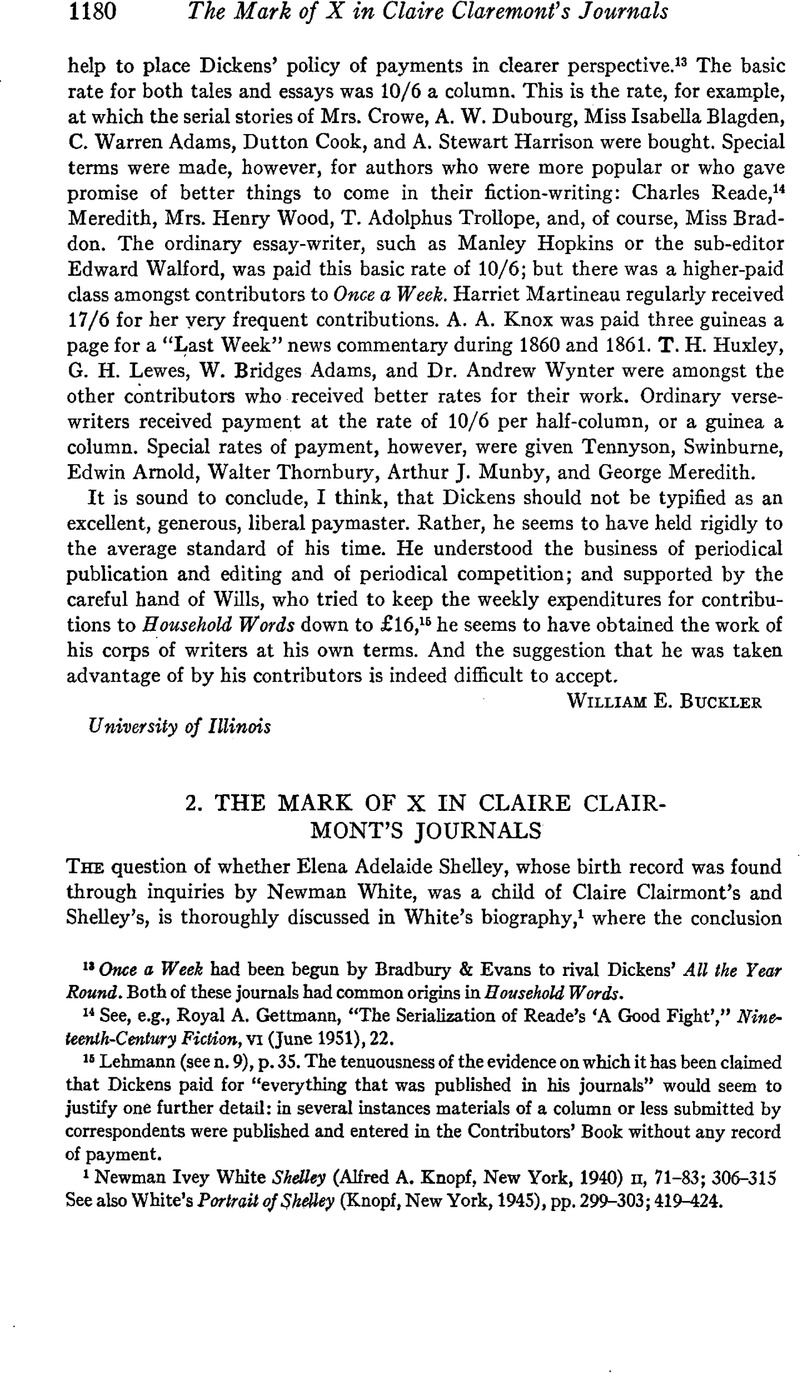Article contents
The Mark of X in Claire Clairmont's Journals
Published online by Cambridge University Press: 02 December 2020
Abstract

Information
- Type
- Comment and Criticism
- Information
- Copyright
- Copyright © Modern Language Association of America, 1951
References
Note 1 in page 1180 Newman Ivey White Shelley (Alfred A. Knopf, New York, 1940) ii, 71–83; 306–315 See also White's Portrait of Shelley (Knopf, New York, 1945), pp. 299–303; 419–424.
Note 2 in page 1181 Shelley himself refers to her as his “poor Neapolitan,” or his “Neapolitan charge,” in his letters to the Gisbornes in June and July, 1820. (The Complete Works of Percy Bysshe Shelley, Julian edition, x, 180 and 184.)
Note 3 in page 1181 White's Shelley, ii, 78.
Note 4 in page 1181 Ibid., ii, 82.
Note 5 in page 1181 Negative photostats in the library of the University of Texas, made from the original journals now in the British Museum, were used; and information was also obtained from Mr. Carl Pforzheimer, of New York, who owns the journal covering January 17 and 18, and from April 23 to June, 1818.
Note 6 in page 1181 Lord Byron's Correspondence, ed. John Murray (London, 1922) ii, 180–182.
Note 7 in page 1181 The Letters of Mary W. Shelley, ed. Frederick L. Jones (Norman, Oklahoma, 1944) I, 148.
Note 8 in page 1181 Mary Shelley's Journal, ed. Frederick L. Jones (Norman, Oklahoma, 1947) p. 114.
Note 9 in page 1181 White's Shelley, ii, 547,
Note 10 in page 1182 Perhaps it should be noted that a mark of X occurs between the lines for April 13 and 14, 1818. It is not in the usual conspicuous position immediately preceding the date and does not seem like the later marks; it may well have been a casual scratching with no significance. If it has any significance, it fits the regular pattern of menstrual illnesses, for the time between April 14 and December 27 may satisfactorily be divided into four periods of twenty-eight days each, and five of twenty-nine.
- 1
- Cited by

